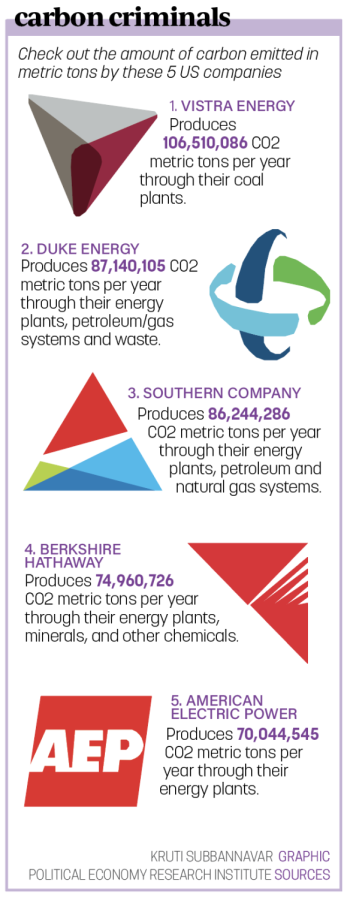Due to climate change, global temperatures are increasing. According to the National Ocean and Atmospheric Administration, since 1981, Earth’s temperature saw an increase of 0.32ºF per decade, with 2020 being the second warmest year to date.
This increase in temperature is affecting athletes, globally and at this school, as they adjust schedules to accommodate extreme heat. Athletics director Jim Inskeep said athletic teams at this school have begun many practices to ensure safety when training in extreme heat.
Inskeep said, “Frequent water breaks, shortening of practices, ice bath tubs for submersing individuals on site, additional timeouts during contests are just some of the methods used when excessive heat conditions are present.”
Brooke Ye, cross country runner and junior, said that her team uses water breaks and morning practices as methods to continue training when temperatures are higher than normal.
“When it’s super hot, we always run on Monon south because there are multiple water fountains for us to take breaks at and stay hydrated,” Ye said. “We also have morning practices in the summer to avoid the afternoon heat.”
Although many teams have had morning practices for years in the summer due to flexible schedules as well as heat considerations, Ye said the women’s cross country team also trained during the morning for a week during the school year.
“There was a week towards the end of August when it was as hot as it was in the summer. For that week, our coaches decided to switch to morning practices, like what we had in the summer, because it was around 20 degrees warmer in the morning,” Ye said.
Suragh Shrianandh, men’s tennis player and junior, said although the tennis team did not adjust practices much to accommodate the heat, there were some modifications to matches, including more water breaks.
“We have matches delayed for rain, but not for heat. We’re expected to play through it. They give us extra breaks by making the changeovers longer,” Shrianandh said.
Pertaining to athletic contests, Inskeep said some cross country meets have been canceled or modified due to heat.
Inskeep said, “It is rare to see athletic contests canceled due to extreme heat, but cross country meets have been canceled due to excessive heat or the event modified with number of races or the time in which the event would start.”
Ye said this past year, during one cross-country races, rules and expectations for athletes changed to accommodate the heat.
“We had this one meet at (the) Northview (Cross Country Course) and it was over 90 degrees that day. And my race was even at noon, so it was incredibly hot by the time we were running,” Ye said. “But they let spectators throw water at us while we were running to cool down. I also saw some girls trying to drink water while they were running. That meet, our expectations of ourselves were different too. No one was really trying to (get a personal record). We were all just trying to do the best we could to finish in that heat.”
Shrianandh similarly said that the expectations his coaches and teammates had changed when the weather became unfavorable due to extreme heat.
“Especially when it’s hot, the expectations of us change,” Shrianandh said. “The only expectation we have is to stay on the court and do the best we can despite the heat.”
Many of these precautions exist due to past instances where extreme heat has been harmful and fatal to athletes. In 2005, a high school cross-country runner from Illinois named Kelly Watt died of multiple-organ failure precipitated by heat stroke. Watt had a disorder called exertional heat stroke, meaning exercise overwhelmed his body’s ability to cool itself and led to further complications in extreme heat.
Similar incidents have occurred in recent years. Last August, Drake Geiger, a football player in Nebraska, passed away after collapsing due to heat during practice.
With these occurrences considered, Ye said she considers extreme heat to be a real issue that requires additional precautions to be taken by athletes.
Ye said, “I think coaches and (administrators) in charge of running our meets have taken good efforts to adjust our practices and races to extreme heat. But there definitely is some concern with climate change that could require more changes to future athletic protocols.”
Protocols exist at this school for occurrences of extreme weather, such as storms during practices and events. However, there are currently no guidelines for cancellations in instances of extreme heat. Inskeep said much of that decision remains up to coaches
Inskeep said, “Unlike severe weather, extreme heat can be predicted and informed decisions made in advance of an event beginning. Severe weather decisions are a combined discussion between athletic trainers, event managers, and administrators. Coaches are typically not able to watch the weather when the contest begins. However, when it is a practice date instead of a contest date, more decision making is on the shoulders of the coaches.”


































![British royalty are American celebrities [opinion]](https://hilite.org/wp-content/uploads/2024/03/Screenshot-2024-03-24-1.44.57-PM.png)


















![Review: “Suits” is a perfect blend of legal drama and humor [MUSE]](https://hilite.org/wp-content/uploads/2024/04/unnamed-1.png)
![Chelsea Meng on her instagram-run bracelet shop [Biz Buzz]](https://hilite.org/wp-content/uploads/2024/04/IMG_2446-1200x838.jpg)
![Review: Quiet on Set: The Dark Side of Kids TV is the long awaited exposé of pedophilia within the children’s entertainment industry [MUSE]](https://hilite.org/wp-content/uploads/2024/04/unnamed.jpg)
![Review: “The Iron Claw” cannot get enough praise [MUSE]](https://hilite.org/wp-content/uploads/2024/04/unnamed.png)
![Review: “The Bear” sets an unbelievably high bar for future comedy shows [MUSE]](https://hilite.org/wp-content/uploads/2024/03/unnamed.png)
![Review in Print: Maripaz Villar brings a delightfully unique style to the world of WEBTOON [MUSE]](https://hilite.org/wp-content/uploads/2023/12/maripazcover-1200x960.jpg)
![Review: “The Sword of Kaigen” is a masterpiece [MUSE]](https://hilite.org/wp-content/uploads/2023/11/Screenshot-2023-11-26-201051.png)
![Review: Gateron Oil Kings, great linear switches, okay price [MUSE]](https://hilite.org/wp-content/uploads/2023/11/Screenshot-2023-11-26-200553.png)
![Review: “A Haunting in Venice” is a significant improvement from other Agatha Christie adaptations [MUSE]](https://hilite.org/wp-content/uploads/2023/11/e7ee2938a6d422669771bce6d8088521.jpg)
![Review: A Thanksgiving story from elementary school, still just as interesting [MUSE]](https://hilite.org/wp-content/uploads/2023/11/Screenshot-2023-11-26-195514-987x1200.png)
![Review: When I Fly Towards You, cute, uplifting youth drama [MUSE]](https://hilite.org/wp-content/uploads/2023/09/When-I-Fly-Towards-You-Chinese-drama.png)
![Postcards from Muse: Hawaii Travel Diary [MUSE]](https://hilite.org/wp-content/uploads/2023/09/My-project-1-1200x1200.jpg)
![Review: Ladybug & Cat Noir: The Movie, departure from original show [MUSE]](https://hilite.org/wp-content/uploads/2023/09/Ladybug__Cat_Noir_-_The_Movie_poster.jpg)
![Review in Print: Hidden Love is the cute, uplifting drama everyone needs [MUSE]](https://hilite.org/wp-content/uploads/2023/09/hiddenlovecover-e1693597208225-1030x1200.png)
![Review in Print: Heartstopper is the heartwarming queer romance we all need [MUSE]](https://hilite.org/wp-content/uploads/2023/08/museheartstoppercover-1200x654.png)























![Review: Ladybug & Cat Noir: The Movie, departure from original show [MUSE]](https://hilite.org/wp-content/uploads/2023/09/Ladybug__Cat_Noir_-_The_Movie_poster-221x300.jpg)

![Review: Next in Fashion season two survives changes, becomes a valuable pop culture artifact [MUSE]](https://hilite.org/wp-content/uploads/2023/03/Screen-Shot-2023-03-09-at-11.05.05-AM-300x214.png)
![Review: Is The Stormlight Archive worth it? [MUSE]](https://hilite.org/wp-content/uploads/2023/10/unnamed-1-184x300.png)



